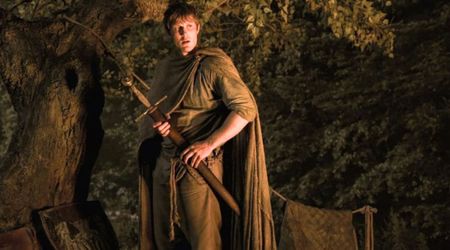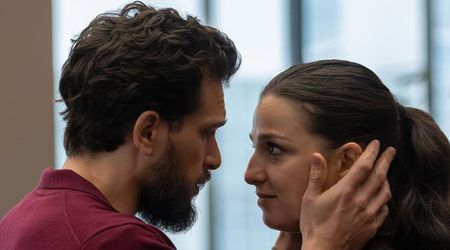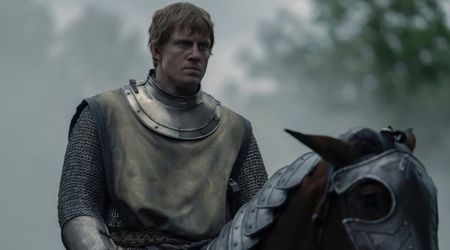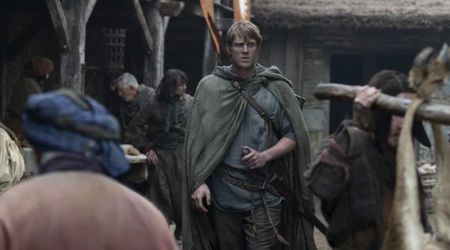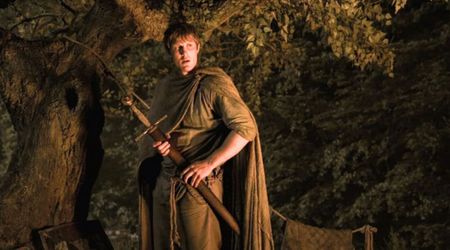'LOTR: Rings of Power': Why Finrod’s dagger symbolizes Galadriel’s growth

LOS ANGELES, CALIFORNIA: Throughout 'The Lord of the Rings: The Rings of Power,' Galadriel’s journey is deeply shaped by her determination to fulfill her brother Finrod's quest to defeat Sauron. This singular purpose drives her across Middle-earth, rallying armies and rejecting the advice of those around her.
The dagger she carries, once belonging to Finrod, becomes a powerful symbol of her relentless pursuit and the weight of her mission. As she clings to this weapon, it serves as a constant reminder of her burden, a burden she finds increasingly difficult to relinquish.
The series skillfully uses the dagger to represent Galadriel's internal struggle and growth visually. Throughout the first season, as she transitions from a fierce warrior to the wise stateswoman familiar to fans of 'The Lord of the Rings', the dagger symbolizes her past motivations and her personal evolution.
Does the Dagger control Galadriel's destiny?

In 'A Shadow of the Past', Galadriel's struggle with Finrod's dagger symbolizes her inner conflict between a peaceful life in Valinor and her relentless pursuit of Sauron. As she prepares to enter Valinor, she hesitates to release the dagger, a tangible link to her vow to Finrod.
This hesitation reflects her uncertainty about whether to embrace peace or continue her brother's quest. Ultimately, she chooses the latter, diving into the water's reflection instead of the light above, signaling her commitment to Middle-earth.
Later, when Halbrand secretly returns the dagger to her in Númenor, it's more than a simple gesture. Although Halbrand, who is actually Sauron, advises her to find peace, the dagger serves as a reminder of her vow and the mission she cannot abandon.
This moment subtly underscores Sauron’s manipulations, ensuring Galadriel remains fixated on her quest, preventing her from seeking a life of peace.
Will Galadriel find redemption in 'The Rings of Power'?

In 'Udûn', Galadriel's encounter with Adar reveals the depth of her inner turmoil. As she interrogates him, Adar turns the tables, questioning her motives and forcing her to confront the truth: her quest isn't just about completing her brother Finrod's mission; it's driven by a burning desire for revenge against Sauron.
In a fit of rage, she nearly kills Adar, but Halbrand intervenes. This moment is a turning point for Galadriel, as she begins to see the destructive path she’s on. When Mount Doom erupts, and she later stops Theo from using Finrod's dagger to attack Orcs, it's clear her resolve is faltering.
She realizes that her vow to continue Finrod's quest has consumed her, leading her away from a life of peace. Reflecting on her husband Celeborn, she tries to steer Theo away from the same darkness she has followed, acknowledging she may have chosen the wrong path.
Will Galadriel join Sauron? The fate of Middle-earth hangs in the balance

In the climactic moment of 'Alloyed,' Galadriel confronts Halbrand, only to discover he is Sauron. As she moves to strike him with Finrod's dagger, Sauron halts her, attempting to twist her thirst for vengeance to his advantage.
He tempts her to join him in his dark quest, but Galadriel, having already 'touched the darkness,' rejects his offer. Returning to Celebrimbor's workshop, she realizes that true creation requires sacrifice.
Galadriel finally lets go of her brother's dagger, a symbol of her grief and vengeance, melting it down to help forge the Three Rings. This act signifies her release from the burdens of her past and her acceptance of a new purpose in protecting Middle-earth.
The dagger, a recurring symbol throughout 'The Rings of Power', serves as a powerful reminder of Galadriel's journey, marking key moments of transformation and highlighting her struggle between vengeance and peace.
'The Lord of the Rings: The Rings of Power' Season 2 trailer


